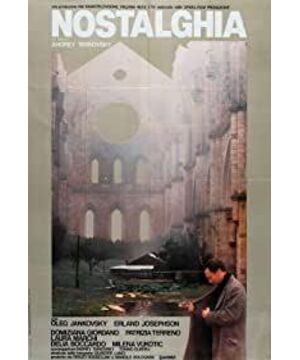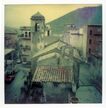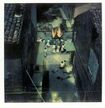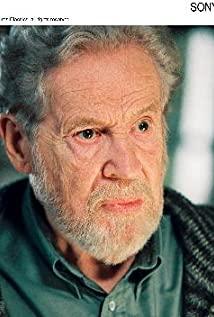There is a sentence in the film, "Poetry cannot be translated, and so is music". Andrei Tarkovsky uses almost synesthesia to express a very personal and poetic way through movies to express a feeling of so-called homesickness but actually goes beyond homesickness to the ultimate destination of life. There are several characters in the film, one is Sasnovsky, a musician who is mainly acting as a biography, committed suicide after returning from Italy for his slave-girl lover; Dominic, a "lunatic" Sasnovsky encountered in Italy , Zeng believed that the world had fallen and closed his wife and children at home for seven years in order to save the world, and finally returned to Moscow and set himself on the square in order to save the world; the heroine Eugenia...The
film’s presentation is very personal, but the script has rich levels. Through interviews with musicians, encounters with madmen, and entanglements with female assistants, the director analyzes the multi-dimensional emotional dependence of himself, his parents, mother & wife; reflects on and complains about the separation of blood caused by politics and history; the ending self-immolation and candlelight In contrast, it sadly accuses the public of indifference, but also weakly preserves the hope of family & love. The metaphors, reflections and honesty of the old tower, the sound of rain, time and holy relics ~ in the audiovisual conception, it is the pinnacle of no one before and after!
View more about
Nostalghia reviews











